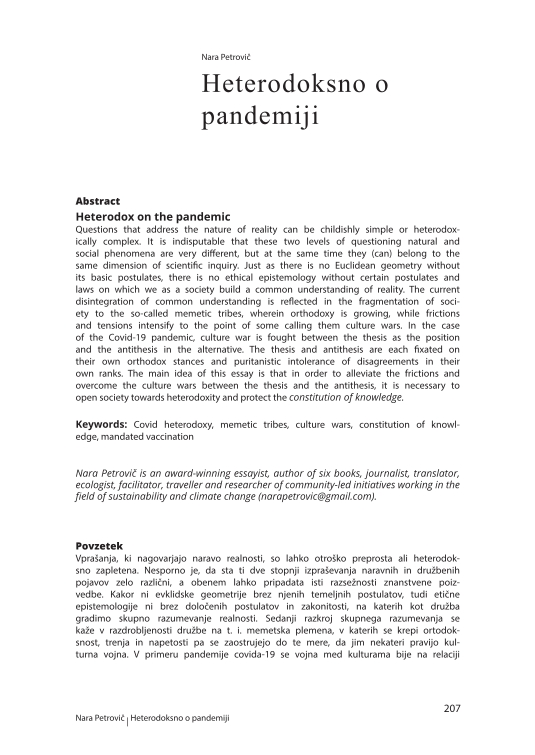Questions that address the nature of reality can be childishly simple or heterodoxically complex. It is indisputable that these two levels of questioning natural and social phenomena are very different, but at the same time they (can) belong to the same dimension of scientific inquiry. Just as there is no Euclidean geometry without its basic postulates, there is no ethical epistemology without certain postulates and laws on which we as a society build a common understanding of reality. The current disintegration of common understanding is reflected in the fragmentation of society to the so-called memetic tribes, wherein orthodoxy is growing, while frictions and tensions intensify to the point of some calling them culture wars. In the case of the Covid-19 pandemic, culture war is fought between the thesis as the position and the antithesis in the alternative. The thesis and antithesis are each fixated on their own orthodox stances and puritanistic intolerance of disagreements in their own ranks. The main idea of this essay is that in order to alleviate the frictions and overcome the culture wars between the thesis and the antithesis, it is necessary to open society towards heterodoxity and protect the constitution of knowledge.



